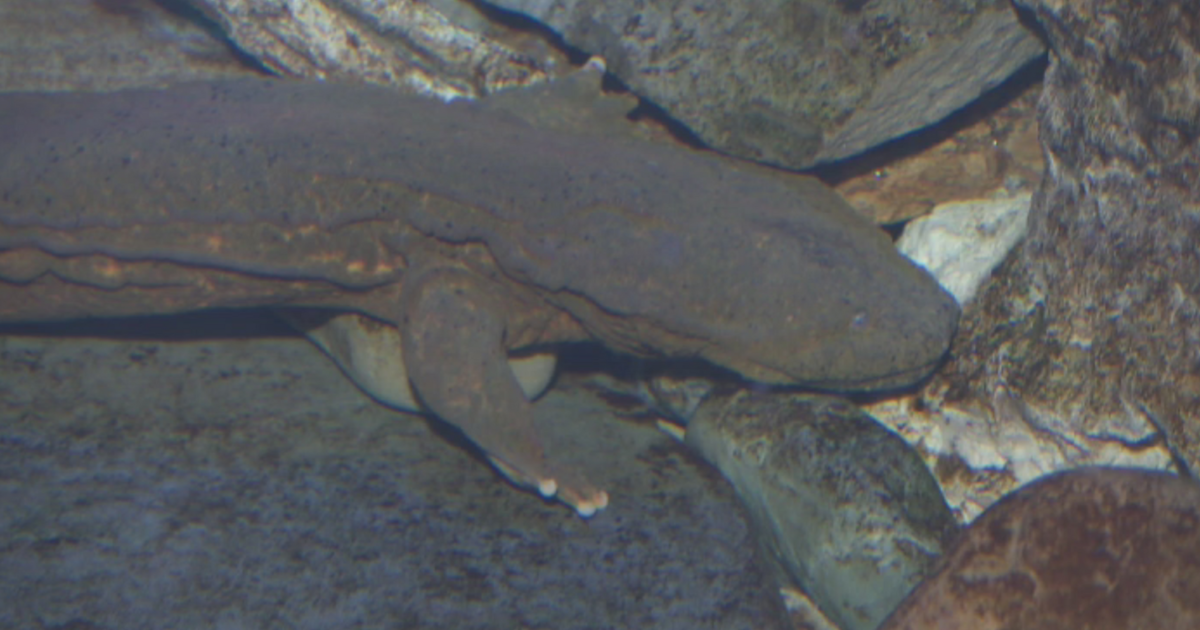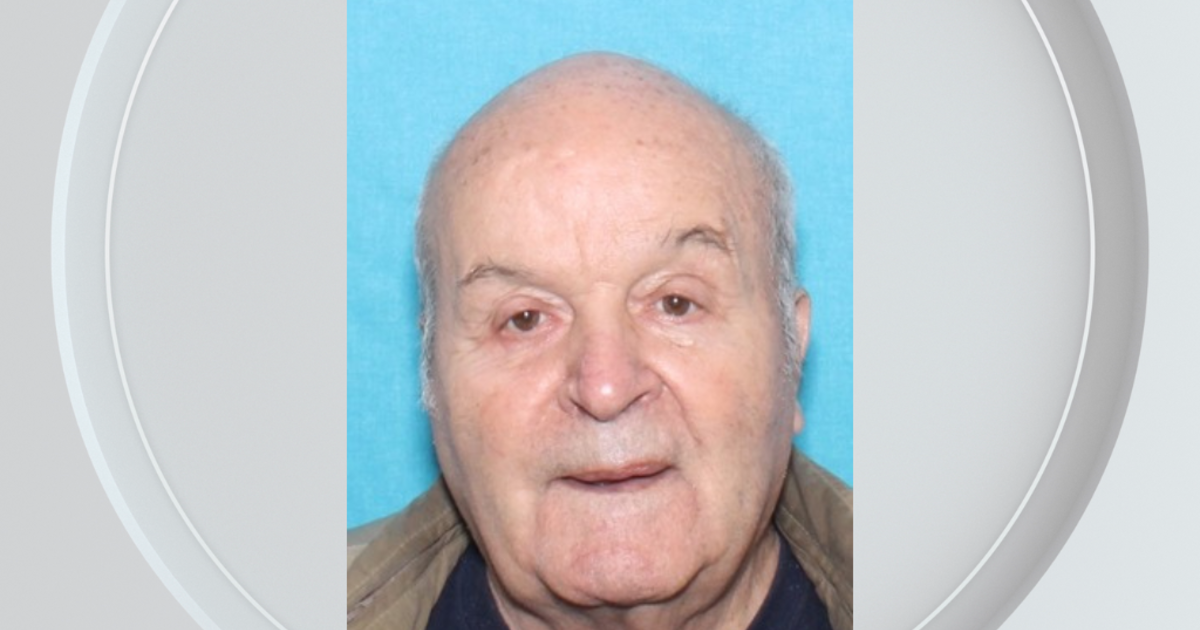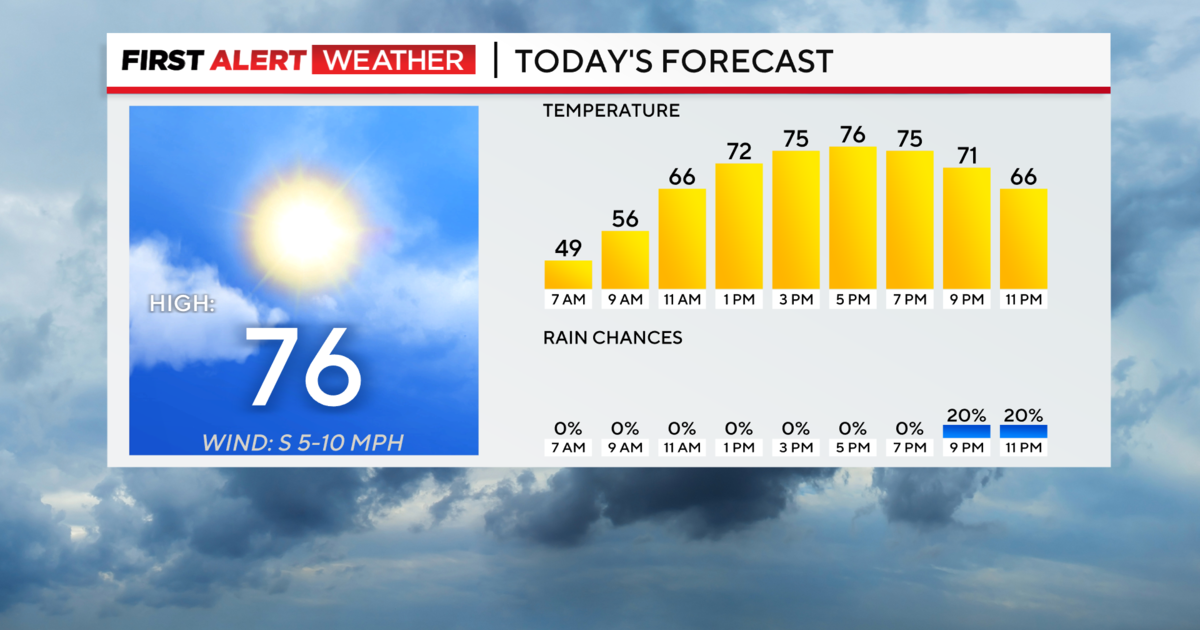"Waking The Sleeping Giant," A Landmark Change In World War II
PITTSBURGH (NewsRadio 1020 KDKA) - Seventy years to the day marks the largest seaborne invasion where more than 5,000 ships and 13,000 aircrafts descended along a 50-mile section of France's Normandy coast.
The world watched on in awe as the Allies grabbed a foothold in Continental Europe.
This was the beginning of their operation to free France from the Nazi occupation and march across Europe to eventually defeat Hitler. More than 9,000 Allied soldiers sacrificed their lives so 100,000 of their brothers could succeed in the freedom of Europe.
The planners chose Normandy beaches because it was less defended and there was easier air access. Airborne drops were initiated at both ends of the beachhead to protect the flanks and open up roadways.
Curator and Historian of Soldiers and Sailors Memorial Hall and Museum Michael Kraus (Pt. 1)
(Photo Credit Mark Wilson/Getty Images)
Three U.S., two British, and one Canadian divisions landed that first day on Normandy. That first phase struggled with confusion, disorganization and faulty plans. However, most troops were able to adapt to the chaos and ultimately achieve their objective. Two British and one U.S. divisions followed the initial landing after the beach was secured.
CBS News Military Consultant Mike Lyons discussed with KDKA's Mike Pintek the logistics and risks of storming the beaches of Normandy. He states that this was the most important day of the century and had things gone different we might be looking at a changed Europe.
"The world had never seen this before and it's likely they never will again," said Lyons.
One of the biggest assets to the Allies was their plan of deception to the Germans. The Nazis were left believing that General Patton would be the one to lead a counter offensive that could take over their stronghold. The Allies had the Germans believe that there were troops to the north ready to invade by a series of misleading correspondence and purposeful burning of equipment to keep them off the real plan.
CBS News Military Consultant Mike Lyons
(Photo credit: KENZO TRIBOUILLARD/AFP/Getty Images)
Lyons continued to explain that today the world is a lot flatter, and with such advancements in the media, a deception like this could never be pulled off again. He said the element of surprise is gone with new military technology.
Offshore air support assisted the Allies who were met with less resistance. That is, in Lyons opinion, what saved the day.
"Everything went right," he said.
He explained that you attack with great mass and force at a 3 to 1 ratio of soldiers to succeed.
Curator and historian of Soldiers and Sailors Memorial Hall and Museum Michael Kraus continued the conversation with a more in-depth look at one soldier who made the ultimate sacrifice 70 years ago today. That hero received the medal of honor, which is now on display at their museum.
Curator and Historian of Soldiers and Sailors Memorial Hall and Museum Michael Kraus (Pt. 2)
He concurs with Lyons that the Allies had to get in to Europe and get in fast to defeat the Germans. Otherwise, the war might have gone on longer and there would have been the possibility of a peaceful way out instead of defeating the Nazis. He imagines that there would be more of a reminisce of that government in Europe had their not been a military defeat.
He explains that we needed this foothold in France to get supplies to those who needed them, it was critical to defeat the Germans. Kraus says this was, "the turning point of the war."
The Germans had bunkers throughout the beaches, but none of them were backed with support and soldiers, they continued to believe that the Allies would not attack the beaches of Normandy. The Allies exploited the weakness of their enemy to fortify the beach.
Even when the Allies began their attack, the Nazis did not feel that this would be the battle to change the war. Kraus says they had no idea that the "sleeping giant was awake" and coming for them.
The Nazis should have had more troops to support their cause, but they were too hesitant to wake up Hitler because he had gone to bed late into the morning. Both the scholars believe that decision ultimately aided the Allies in their successful take over.
Curator and Historian of Soldiers and Sailors Memorial Hall and Museum Michael Kraus (Pt. 3)
(Photo Credit: Mark Wilson/Getty Images)
"It's always been the difference between the U.S. military and other countries and their militaries, you got the good side and the bad side," said Lyons. "Look at today's military, the amount of responsibility we give the 25-, 26-year-old privates and sergeants to make decisions on the ground, to be a warrior, to be a liberator. Whereas these other countries, their privates, their low level people just don't move, they're not given that same level of freedom. You gotta take the good with the bad, it's cost us some heartache, you can make the claim that Sgt. Bergdahl is a good example of that. But on the upside you get initiative and guile, and you get much more success on the battlefield."
Tune in weekdays noon to 3 p.m. for more from Mike Pintek on NewsRadio 1020 KDKA!
RELATED LINKS:
More From NewsRadio 1020 KDKA
Like NewsRadio 1020 KDKA On Facebook
Follow NewsRadio 1020 KDKA On Twitter



